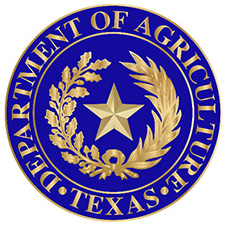Record soybean crop within reach, despite planting delays
Farmers might still harvest the largest U.S. soybean crop ever, even if a rainy spring kept them from planting as much of the oilseed as they had intended. Meanwhile, growers planted slightly more corn than expected, despite high prices and tight supplies for fertilizer and pesticides, reported the Agriculture Department on Thursday.
USDA funds to help schools buy food
The Biden administration said it would provide an additional $943 million in USDA funds to schools so they can purchase American-grown food for their meal programs.
Climate ruling could ripple into food and ag regulations
The U.S. Supreme Court limited the EPA’s ability to regulate carbon dioxide emissions from power plants on Thursday. The ruling could have broad impact with its reasoning that Congress must give an agency specific authority to act on particular issues.
On Bangladesh shrimp farms, climate adaptation gone wrong
For generations, Islam’s family farmed rice. But beginning in the 1980s, rising seas and storm surges began pushing saltwater through the banks of tidal rivers and ruining their crops. His father, along with millions of other coastal farmers, decided to flood the family’s rice paddies with brackish water and stock the briny ponds with black tiger prawn fry. However, the tradeoff for a few years of income has been decades of environmental degradation and sometimes violent conflict that shows how some adaptations can end up making people more, not less, vulnerable.
TODAY’S QUICK HITS
Win for Iowa CAFOs: In a blow to rural property owners, the Iowa Supreme Court gave livestock farms partial immunity from lawsuits alleging that water pollution or odors from the farms create a nuisance. (Associated Press)
EPA suggests atrazine rules: The EPA, in an effort to protect aquatic plants, has proposed new restrictions on the weedkiller atrazine, including prohibiting applications from the air and during rainstorms. (DTN/Progressive Farmer)
Social values, food choices: Americans’ willingness to eat genetically engineered food is driven primarily “by their existing social values about food, science and technology, institutional trust, and awareness” of the foods and not by the foods’ safety, cost, taste, or appearance, said researchers. (Iowa State University)
Wheat growers’ wish list: Priorities for the 2023 farm bill include a higher reference price — a key factor in calculating crop subsidies — a “strong” crop insurance program, voluntary conservation programs, and export promotion, said a trade group for wheat growers. (NAWG)











